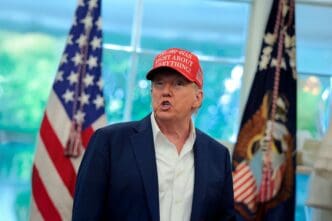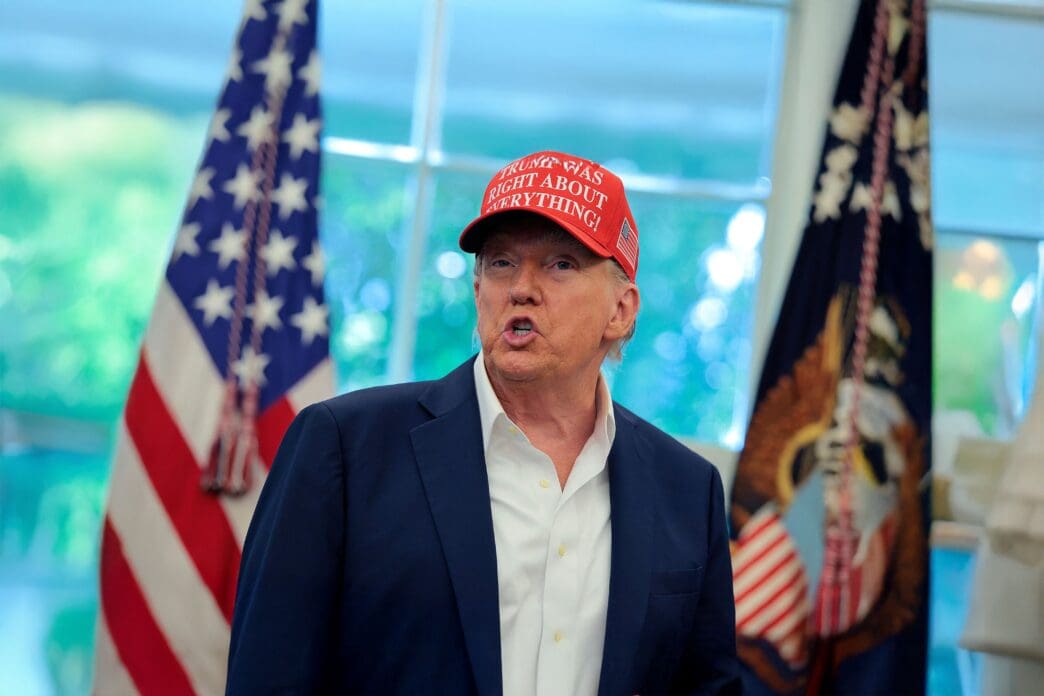Executive Summary
The Story So Far
Why This Matters
Who Thinks What?
President Donald Trump has sparked concern in Nigeria by suggesting potential military intervention and threatening to withdraw US aid, citing a “mass slaughter” of Christians by Islamist insurgents. However, experts and analysts on the ground describe a more complex security crisis in Africa’s most populous nation, where both Christians and Muslims have been victims of violence.
Trump’s Intervention Threats and Nigerian Reaction
Over the weekend, Trump instructed the Pentagon to prepare for possible military action, describing the proposed intervention as “fast and vicious” and aimed at eliminating “Islamic Terrorists.” He also warned that all US aid to Nigeria would cease if the government failed to halt the killings of Christians.
The Nigerian government expressed shock at Trump’s remarks, with presidential spokesperson Bayo Onanuga stating bewilderment at the suggestion of a potential invasion. The government rejects claims that it is not adequately protecting Christians, emphasizing its efforts to safeguard religious freedom for all citizens.
The Nuance of Nigeria’s Security Crisis
Analysts argue that the violence in Nigeria is multifaceted, stemming from religiously motivated attacks, communal and ethnic tensions, and disputes over land and water resources between farmers and herders. The country, with a nearly equal split of Christian and Muslim populations, has long grappled with these deep-rooted security challenges.
While Islamist groups like Boko Haram have targeted Christians, particularly in the northern region, they have also massacred tens of thousands of Muslims. Human rights advocate Bulama Bukarti described Trump’s comments as a “dangerous oversimplification,” warning that such rhetoric risks deepening divisions and misinforming the international community.
Perspectives on Christian Persecution
John Joseph Hayab, a pastor and leader of the Christian Association of Nigeria (CAN) in the northern region, agrees with Trump’s assertion of “systematic killings of Christians” in that area, though he notes a reduction in scale over the past two years. Hayab urged the Nigerian government to acknowledge the issue, mentioning the advocacy of US Sen. Ted Cruz, who introduced a bill calling for sanctions against Nigeria over alleged religious freedom violations.
Conversely, Bulama Bukarti highlighted that Boko Haram’s attacks on civilian locations like markets and bus stops disproportionately harm Muslims, given the demographics of the regions where these groups operate. He stressed that both major religious groups have suffered extensively from extremist violence.
Documented Violence Against Both Communities
Northern Nigeria has seen numerous horrific killings this year. In April, gunmen believed to be Muslim herders killed at least 40 people in a predominantly Christian farming village. Two months later, over 100 people were massacred in Yelwata, a largely Christian community, an event for which Pope Leo XIV offered prayers.
However, Muslims have also been victims of significant attacks. In August, at least 50 worshippers were killed when gunmen attacked a mosque in Katsina State. Data from Armed Conflict Location & Event Data, a crisis-monitoring group, indicates that between January 2020 and September of this year, 417 Muslim deaths were attributed to targeted attacks, compared to 317 Christian deaths, although the religious affiliation of the vast majority of casualties was not included.
Security analyst Nnamdi Obasi of the International Crisis Group explained that while extremist groups target both, bandit groups primarily terrorize predominantly Muslim communities in the northwest. He emphasized that Christians and Muslims generally coexist peacefully across most of the country, and claims of widespread persecution are often exaggerated.
Implications of US Intervention
Nigerian President Bola Tinubu has remained silent on Trump’s military intervention suggestion but rejected the designation of Nigeria as a “Country of Particular Concern” under the US International Religious Freedom Act. Tinubu stated that the characterization does not reflect Nigeria’s reality or the government’s efforts to protect religious freedom.
Analyst Obasi cautioned that any unilateral US military operation would likely be unwelcome and could further destabilize Nigeria, failing to address the underlying drivers of instability. He urged the Nigerian government to intensify efforts to end all mass killings and tackle the root causes, including religious extremism, resource tensions, and banditry.
Bulama Bukarti advised the Nigerian government to respond to misinformation with data and engage in constructive dialogue rather than defensiveness. He argued that candor, not posturing, would best serve Nigeria’s interests and the cause of peace.








